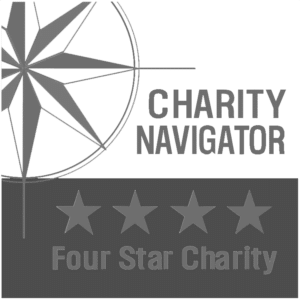You’re listening to Together by AGCI. I’m Melissa Rush.
HIV is a diagnosis that can feel really scary for families. Misinformation and stigma around the disease are some of the primary reasons why adopting a child who is HIV positive can feel out of reach. So much has changed in the care and treatment of children and adults living with HIV over the last few decades. It’s no longer a death sentence. With proper medical care and management, people with HIV can live full, long lives. They can be healthy, active, and happy. They can get married and have children with almost no risk of spreading the virus to their partner or child. While there’s no cure for HIV, with medication the virus can get to a point where it’s undetectable, making it next to impossible to spread to others. I chatted with Dr. Mary Staat, infectious disease specialist and director of the international adoption center at Cincinnati Children’s Hospital about what HIV is, how it can be managed, and how we can combat stigma around it. Let’s get into our conversation.
Well, thank you so much. I know you’re so busy so really appreciate you taking the time to chat with us and I just think this will be so helpful for families. So, can you kind of just start by just telling me a little bit about yourself and kind of what areas you specialize in?
Yeah, I’m, I’m Mary Staat and I’m an infectious disease, pediatric infectious disease doctor at Cincinnati Children’s Hospital. I’ve been here for 26 years now and have been, uh, running our international adoption center for the past, uh, 22 years. Um, we have three children who are unusually adopted and are now, uh, needing adults. And, um, we really have enjoyed taking care of our families over the years and providing them with pre-adoption, um, uh, reviews, um, as well as even whenever special needs checklists with families. Um, and then seeing the kids, um, who can make it to our center in Cincinnati, um, uh, after they come home. Well, so that’s really cool. You have kind of both sides of the coin there as like in your professional life, obviously. And then personally, how has that, do you feel like that’s kind of made it easier for you to kind of understand the journey that families are on? Cause you, you got it from both sides. Absolutely. I know reasonably, we had the adoption centers because my, my experience with my middle daughter who was a special need of a heart condition, and I really felt, um, very isolated and didn’t feel like I had anyone to turn to initially, um, when we were in country and I was like, no family should ever really have to feel like this. They should give a partner helping them with these, um, medical questions that they have.
And, uh, I’m really as a result of, for our experience with her, uh, really shortly thereafter, we, um, uh, developed the international option center. Um, and I was thankfully able because of what I do to get the, the advice I needed to, to move forward with adopting her. And she’s now 26 year old or 27 year old, I guess now, and you know, is, uh, um, you know, can’t imagine life without her, but you know, it was a very scary situation for us and we really needed to, um, have somebody that can really help decipher, even for me as a pediatrician, kind of what the next steps were because I was not an expert, you know, in cardiology, in what they were telling me wasn’t matching up and I just needed someone else to help us. And so that’s absolutely, you know, why we have the international adoption center. I have another whole, um, really career and research in infectious diseases and take care of kids with, uh, kind of complex infectious diseases, the hospital. And, um, it’s a small part of what I do with the international adoption center, but it’s probably the part that I’m most passionate about. Yeah. Well thank you for sharing that.
Um, I always love to kind of see how these kinds of pieces can intersect in your life and something like, so personal then can become this, you know, even though you say it’s kind of a smaller part of what you do day to day, but it has like helped so many other families kind of navigate that process, which can feel overwhelming. Cause for most people it’s not, you know, something, they have tons of friends and family that have gone through. So, um, so today I, you know, obviously want to talk about HIV and just, I kind of would like to get to the really basic level. Like, can you just, just at a very basic level, explain what is HIV and how it’s spread? Yeah. HIV is the, um, human immune deficiency, um, uh, virus and it’s, um, I can remember the very beginning of my career when people were dying from something. Um, and it was very scary time and we learned of HIV and, uh, again, have the perspective that, you know, kids died from this, you know, the, the, the, the moms dads people died from this infection. It was very, very scary. Um, there’s really not effective treatments there wasn’t really screening in place. And, um, it was a very devastating, um, scary, um, infection.
And I think that probably without having, you know, updates along your life, if that’s kind of what you’ve heard about it, about HIV, it will be something that people die from something that will be very contagious. Um, and, uh, people can’t do well with. Um, and that’s really not the case these days. Um, the HIV virus is, is, is, uh, causes infection typically in our kids, um, from their mom having it and passing it on to them. Okay. Um, if you have great screening programs in place, then you can identify someone who has who’s pregnant with HIV and give them medications actually keep them from passing onto the baby. Very, very effective, not all places, not even the United States. Um, are we a hundred percent successful in doing that? And so, um, we will have some babies, unfortunately that will be born, um, to have, um, been infected with the HIV virus. And, um, typically again, they will be identified with it and start on treatment. And, um, and what’s different now is that those kids typically do very, very well from a long-term standpoint, as long as it’s identified very early, um, in their life, like within the first weeks of life, um, they will typically do, do very well with a chronic disease for their life. Okay. But not a desk, but the outcomes. Yeah.
Well, that’s, I mean, it’s kind of amazing, like you said, people have that perception of, of what that is from that really scary time. Um, you know, 20, 30 years ago and how far science has come that now you can, yeah, it’s a chronic illness, but you can have a normal life span, which is wonderful. Um, so kind of just to make sure that this is clear for people. Can you explain how HIV differs from aids? Yeah. So age is really kind of the end stage of an HIV infection that you then have, you know, damaged your immune system to the point where you are susceptible to getting, um, some not very typical infections okay. That anybody else would be able to, just to fight off. Okay. But because of the specific, um, problems with your immune system now, because you have HIV infection for a long time, and there’s been destruction of your immune system, then you have, um, these atypical infections that can ultimately kill you. Okay. Um, in, in, in also have cancers. Okay. Then again, you know, or, or due to just an unregulated, you know, uh, not so perfect immune system that allows cancers to develop. Um, it can cause other damage to other organs in your brain that are even not infectious, um, outside of HIV, that HIV thing, plus direct damage to the brain. Um, and it’s, it’s an end stage of an HIV infection. Okay.
So I don’t think we had any kids in my, you know, 20 something years, you know, who had aids, um, uh, that have come home with HIV aids. Um, you know, all of them have had HIV infection and in more recent years, all of these infections have been relate very nicely, um, control. Um, again, not sure not, you know, to just manage with medications because our medications are really quite, and, you know, you kind of touched on this earlier that, um, people tend to think of HIV as a death sentence, which isn’t true anymore, but are there other common misconceptions that you hear about HIV? Often? I think a common misperception is that it can be spread very easily. Okay. And that, um, you know, you can’t get kids in the future, your family is put at risk, you know, you can rest, um, you know, friends and schoolmates and things. And, um, the truth is, which is just a sign. She actually is that if, if you were adherent and I use it here at compliance, kind of saying, okay, if you are very, very, uh, on top of taking your medications, not missing doses, taking the medications as prescribed, you will have no viruses detectable in your blood to spread to anybody. Okay. Markable okay.
You know, you go, you will be able to, you know, live your life without this theater, that your family’s fear of spreading the virus to someone that you would have a child with later in life. Okay. Because the medicines are that effective that you really can’t transmit the virus, if you are on your medication prescribed. Wow. That’s, that’s amazing. It’s really amazing. Yeah. So just to clarify, that would mean, I mean, and as we already know, it’s not, it’s not something that is being spread through just normal, like everyday contact. You’re not gonna get it from sports or like a cut necessarily, or anything kind of just like normal family contact. You did not have, if you did not have, um, we’re not on medications and you had detectable virus in your blood, they will do testing to see what your viral load is, how many copies you have and the blood sample to seek, to determine that your infectiousness okay. You certainly could spread it. Okay. Um, would it be so very easy to spread it? Okay. Please spread it. Okay. Um, with a big blood accident or, uh, and then that person getting their hand or getting the blood in her eyes, getting them a mucus membranes you could have, or a cut, you know, and you’re helping somebody, um, or, um, you know, kids get older sexual activity credit. Okay.
But if you were on taking any medications and you are looking at, you know, viral loads and you know that the fire was not detectable, then you’re not going to spread it. Okay. And again, you witnessed spread it very easily, you know, even if you had fires in your blood, but it certainly could. Okay. And in that situation, you would certainly want to make people aware that he did have that kind of exposure, um, that that happened, but that’s not the, with our kids, um, or just in general, in the United States where there’s really good HIV care and, um, children and adults are placed on medications that keep the viral load. Non-detectable therefore the virus is not visible. Wow. That’s amazing. So getting that down to a manageable level, like, what does, what does a treatment plan? I know everyone’s different, but in general, what does a treatment plan look like for a HIV positive child? So I do think some people have the idea that they’re going to be managed their whole life, you know, with lots and lots of doctor’s visits with an HIV specialist have to be in a place where there is an HIV specialist. There’s make lots and lots of visits. That’s really not the case.
I think the first year there’s a lot of testing that’s done and trying to understand kind of where we are and making sure we, you know, uh, just overall adoption testing and infectious disease testing, immunization catch up in HIV specific care. But then it kind of looks like maybe twice a year visits for a couple of years. And then usually once a year visits here in particular. And even if you aren’t in an area where you have, um, uh, an HIV specialist, you can certainly, and certainly the pandemic has showed us that we could do telemedicine and we could, you know, uh, relate consultant with an HIV specialist to help us, um, the things that you’re really looking at, what that HIV specialist is to make sure that you’re not getting any side effects from medications, your teeth well, um, and that you’re just overall doing well. Okay. And so, um, you know, it’s really not as overwhelming, um, from a, you know, doctor visit management standpoint, other than you need to be absolutely adherence, absolutely taking those medications every day as prescribed times are once a day, once or twice a day. Um, I think for the purposes of this conversation, it’s, we’re not going to go into all the different medications combinations that you can have a, you know, a medication that, you know, that will be prescribed by the HIV specialist or infectious disease specialists.
And, um, they will monitor whatever side effects that you might have, which tend to be pretty minor. Doesn’t seem to be a major issue and in adjusted doses as the child grows, because it is based on the child’s weight. Okay. We’ll make sure the child tolerates it. Um, you know, he has the form that they can tolerate a liquid or a pill or a fresh pill or whatever. And then, and then, um, monitor that over time to make sure that we adjust the dose it’s child growth. Wow. So, I mean, that’s, again, I feel like I’m just repeating myself. That’s kind of remarkable when you think of how scary that this diagnosis can feel to, to know that it can be managed with, you know, especially once you get it under control a once a year visit. Um, and with, you know, obviously if you’re inherent taking medication every day, I mean, that’s true for so many illnesses. So other than just making sure you’re, you’re taking that medication every day, are there other, like day-to-day impacts on a kid’s life? So, so I think that, you know, when I talk with families about this, that I think, um, in, in what I know, uh, I, we actually have an HIV clinic here that, you know, we really partner with, you know, for our kids to come home locally.
And just in talking with her pretty recently, actually about kinda what, what kind of issues, you know, are you seeing, you know, with the kids, um, that, you know, are of concern to you and I, and I think it’s, and I, I think, you know, I, wasn’t surprised by her answer. It’s, it’s really, um, you have to make sure that you’ve been find ways to pay for the medications. Sometimes the insurance, there are ways to do it. There are funds available, but you have to do your research, see what your insurance will cover. Okay. Because the medications are quite expensive. Okay. And that could be really very hard for families if they have an insurance plan that doesn’t cover it, or if you were in some income bracket that actually thinks they’re very poor, they get covered very well. It’s very, very wealthy. Then, you know, you can, you can make up the difference of what insurance doesn’t cover is. Typically if I’m serving the middle group that might have, you know, an insurance with a high deductible, um, and, uh, insurance doesn’t cover the meds as well. There are programs it’s state by state. There’s not a way for me to really cover that this conversation, they have to research to see it.
How can we, you know, how can we make sure that we, um, can cover the cost of this medication, um, medications, you know, that, that ends up being, uh, you know, pretty costly at this point, which probably over time will get less expensive, but that is the immediate concern. Um, you know, here now, right? When you get your child that you have to deal with you, the other thing that families struggle with is they’ll be very educated and know that their child’s risk of spreading the infection is non-existent or incredibly negligible. Okay. Yeah. That, that they have feeling members and friends that will not, you know, um, educate themselves or will be fearful, um, and will, um, you know, can, can cause problems with those relationships. Okay. Because people don’t understand it. Okay. The only infection that that’s the basic, you talk about that with hepatitis me, and if I see and other infections, but yeah. There’s certainly a stigma with HIV. Okay. That, um, you know, because of everything happened over the past years, that seems to be more problematic. Okay. And I think the other thing is when kids become old enough to understand that they have HIV, and then they also, you know, kind of then decide to share it, or, um, they, they themselves can have, you know, some, some issues, uh, you know, socially with relationships because of their same misunderstanding. I think over time, things will get better.
But I just recently heard, you know, this, um, this week, um, uh, a story on TV that was saying that people still struggle, you know, with sharing that information because of people’s preconceived ideas about HIV and their fear of it. So I think those are the things to really carefully consider. And then often, you know, oftentimes, you know, the children, children come from all countries, but then you also have the racial differences, um, that you compound. Okay. So you have all of these kind of social, you know, relationship issues that families should be carefully considering the end game plan for how they’re gonna, how they’re going to manage this and how they’re going to support themselves and their, and their child, um, through these kind of this misinformation that’s understanding. So I know it’s like such a complex issue, but how do you feel like families can kind of help combat the stigma surrounding HIV and with, you know, having conversations with family and friends. I know it’s, it’s complicated with disclosure and things like that, but what are things that we can be doing? Yeah, I think, I just think it over time, people, you know, now hear of more and more people that are, um, you know, living with HIV and living full lives.
And you would, you know, I, I’m a, I’m a standard because of my, you know, white experience from when I started my career to where I am now that I would never even know the person had HIV by their history, you know, their medical issues, because they’ve been really healthy their whole life, you know? Um, and I think that, you know, there needs to be just more education at that level that, you know, this, this is, this is something not to be fearful of it’s well, um, and that you won’t be getting, you know, affected by somebody that has it. Um, but, but it’s, there’s a lot of ignorance and a lot of, you know, just lack of knowledge and this information that’s out there. And, and as a family, you have to be willing to, you know, be that advocate for your child and for your family and help, you know, really educate others. Um, when she decides to disclose it and many families don’t disclose it, they don’t have to disclose it. Um, but I think you have to look closely at your family. You know, I, I often tell my families and there people that in my daily, I just wouldn’t share something. So there are other family members that I would okay.
And, you know, you’d have to assess that yourself, you know, you have no obligation to tell everybody in the world, you know, what, what, uh, is going on with that child from an HIV standpoint, um, as long as you’re being adherent with medications and they pose new risks, um, you know, or, uh, yeah, absolutely. I know it’s a complicated thing. Like you said. I mean, some people can, you’d be able to have a conversation with them about that and kind of explain, um, some of the things that, uh, you know, people don’t understand and other people just hear that. And I think that’s kind of the, that’s the end and they just give their opinion and, you know, they, they are, yeah, it’s just out of fear. They’re just too fearful to, uh, you know, to, to learn more, you know, um, we’re just trustable to learn more. The other thing that I, I had the conversation with and not to discourage folks, but just because I think, you know, my, my role with, you know, helping families and I feel very passionate about this is to really Evan sees the big picture, not just this cute little one that’s coming down when they’re two years old, three years old, yet whatever condition they have, but, but like let’s walk through life and see what that okay. And, um, you know, I, I think you’ve mentioned that they can have a normal life expectancy.
Um, I think that right now we’re thinking that the case that we’re not that far out where we don’t know if they’re gonna live to 60, 80, you know, whatever that normal life expectancy is, but we’re very optimistic that they are having a very, um, normal, uh, life expectancy into young adulthood. Okay. Um, but again, that depends on them being adherent. I’ve said that, um, but, uh, to repeat myself, you can be very adherent when your parents are giving you your medications every day. There’s something that happens in adolescence when kids are becoming adults and to manage their own care. And that’s when a lot of our kids with any kind of chronic illness get diabetes, heart disease, kidney disease, whatever their issues are. Okay. Once they are responsible for their care. And if they do not take that responsibility seriously. And that’s when we run into issues. So a lot of times I’ll see kids with HIV, um, with complications from HIV when they are adolescents or young adults, because they have now assume their care and they’re happy to hear it anymore. And it’s the same as we see with is you have diabetes, or like, I don’t want to do this anymore. I don’t want to have this disease is infectious problem. And then they make their own choices. And then that’s when they have problems. Okay.
So why do you think that we can control every single thing about our child, the rest of their lives? I’m learning as my kids are young adults, that that’s not the case. I don’t get to control everything and I never did actually, but you’re under your roof. That that’s the case, but, you know, it becomes a reality that some kids are going to be, you know, very adherent and take it seriously. And other kids are going to say, I’m tired of taking these medications. I’m tired of having to do this. Um, again, not totally working somebody that is daily medication, some followups, um, that, you know, um, they’ll get in trouble. And if, once they do that, then you know, that HIV infection will start to hurt their immune system. And then they will be susceptible to getting other infections and other cancers and things like that that could cause them to get aids. And then, um, and then died. Yeah. Yeah. So that, you know, and that’s a tricky to navigate, I guess, especially at that age, like you said, where they maybe don’t have, um, they’re old enough to be managing their care, but they maybe don’t have the, the understanding of the tiredness, I guess, of the situation and that you, you need to be taking that medication to, and then it is manageable. But if you don’t do that, you run into issues.
Um, can you touch a little bit more on kind of how HIV can kind of affect kids? I mean, just in that transition to adulthood in terms of, you know, getting married, potentially having children kind of what that can, can look like. Cause I think that can be a fear for families of like, you know, they won’t be able to have a quote unquote normal. Yeah. Because again, they won’t, you know, through sexual activity, they will not be able to transmit that virus. Let’s just say for some reason that they were able to okay. That they weren’t taking their medications. Okay. Um, then that baby, you know, would be, um, if, if the mom is infected that baby wouldn’t be, um, uh, able to get infected. Okay. Um, and then, um, again, you would, they would be monitoring that HIV viral load all through the pregnancy, once it was ever detectable, you know, um, first of all, they’d be advising mom to make sure she was taking her medicines, but let’s just say everything goes wrong and that baby is born with HIV. Um, then, you know, we can even, um, around delivery and around the first weeks of life even prevent the baby from getting infected. Okay. Wow. So there’s even a possibility, like if everything were to go wrong, possibly that the baby was not getting back there or that you could even treat the baby right, right. At work. Okay.
And implement the baby from getting infected. And then again, the baby is infected again, we’re talking about kind of the same conversation we’ve already had is that you would treat it early on and that baby would be managed with medications about the life. So, um, we, we have lots and lots of, you know, um, you know, our, our infectious disease service manages those, uh, um, burst, uh, every week we have a list, you know, in our town of all the moms that are HIV positive so that it makes sure that they are all getting on medications right after they’re born. Um, part of what we do, it doesn’t happen right here in the United States or so lots of people that have HIV that are having babies. Okay. Do not infect the baby. That it’s a very hopeful time, you know, and it’s not to say that we won’t have cures at some point it’s, it’s, it’s been a long time and it’s not been an easy task. So I don’t want people to say, you know, to think, oh, in five years, I’ve never said this, but you know, so in five years, in 10 years we’ll have a cure. That’s the case. Okay. And we may never have a cure. Okay. But I think we have better and better drugs to manage this. And it’s a manageable chronic disease, chronic infection.
Um, you know, in the scheme of things, a lot of the things that you can have, it’s one of the things that, uh, I think is more manageable, um, as long as you kind of understand those risks as they get older, when they start assuming you’re in care that you have to look into your insurance to make sure that you can understand how to manage pain for those medications in that you can also look at your, your family and your friends and your community to see how you can successfully, you know, um, support advocate, you know, educate, um, and protect that child against kind of the stigma that is associated with HIV. Yeah. Wow. I mean, that’s so hopeful. I mean, I’m so excited to see kids coming home with HIV, um, because it is so helpful. It is so hopeful, but it is really important for people to consider all those things, how this can work with their feelings. They should not be fearful that their family is going to get infected. They should not be fearful that the child’s going to die from aids. No, but they should look at those other aspects of it to make sure it’s something that they can take.
Well, and that’s kind of interesting because it seems like, I mean, obviously there are very real risks and, you know, you need to be compliant with your medication and all of these other things, but it seems like the biggest, uh, issue right now is, is more like misinformation and stigma, like, and kind of navigating that. And socially for kids and family members like to not be afraid. Yeah. You just have to be willing as a family to take that on. Okay. And that’s very hard to do. I mean, there’s, there are people that just really, um, aren’t going to be, um, able to be educated about it and you have to be willing to say, okay, I will, you know, advocate for my child. I will not let my child suffer at their expense, you know, no, never negative things. Um, or, you know, misinformation can be, you know, spread about them. Okay. And so just, you have to be willing to see as a family to relate, um, do that. So yeah. Well, thank you so much, Dr. Stat. It was so great to talk to you. And I feel like I know this can be kind of a scary topic for folks, but I’d feel very hopeful about it after hearing all that you had to say. Yeah. Well, I’m glad to be able to share with you.
We really excited to know that, you know, first of all, that these kids can come to our families if people are, um, considering, um, the special needs. Um, and, uh, you know, I think there are plenty of people, no matter where you live, you know, in the United States or abroad that are very knowledgeable about HIV, um, that can really, um, helped me navigate, um, this, this, uh, uh, treatment and management, um, over their lifetime. So, um, don’t be fearful of that. Yeah, absolutely. Um, well seriously, thank you so much for doing this. I know you’re so busy. Um, so I really, really appreciate it.
That was Dr. Mary Staat, Director of the International Adoption Center at Cincinnati Children’s Hospital. Thanks for listening to Together by AGCI. As always, if you liked what you heard, please rate or review us wherever you listen to podcasts. If you’d like to read or watch even more stories, check out our website, allgodschildren.org, reach out to us and let us know what you think on Instagram @allgodschildreninternational or email us at together@allgodschildren.org. We look forward to sharing another story of hope. The next time we’re together. We’ll talk to you soon.










